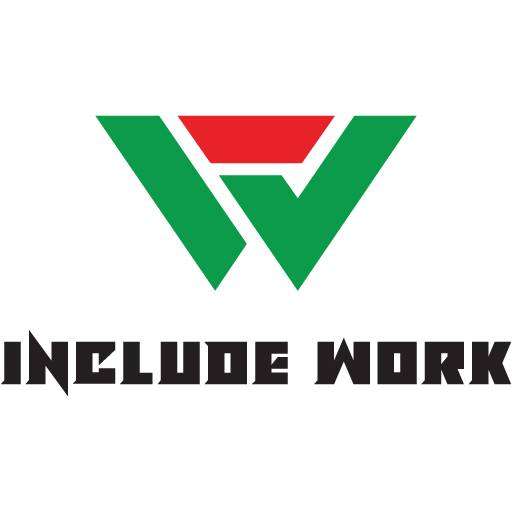What Does Virtualization Technology Do, Virtualization technology is a groundbreaking advancement in the world of computing. It allows for the creation of a virtual version of something, such as an operating system, a server, a storage device, or network resources.
Table of Contents
This technology enables businesses to run multiple operating systems and applications on a single physical server, significantly improving efficiency and reducing costs. So, what does virtualization technology do? Let’s dive into its various aspects and understand its impact.
What Does Virtualization Technology Do?
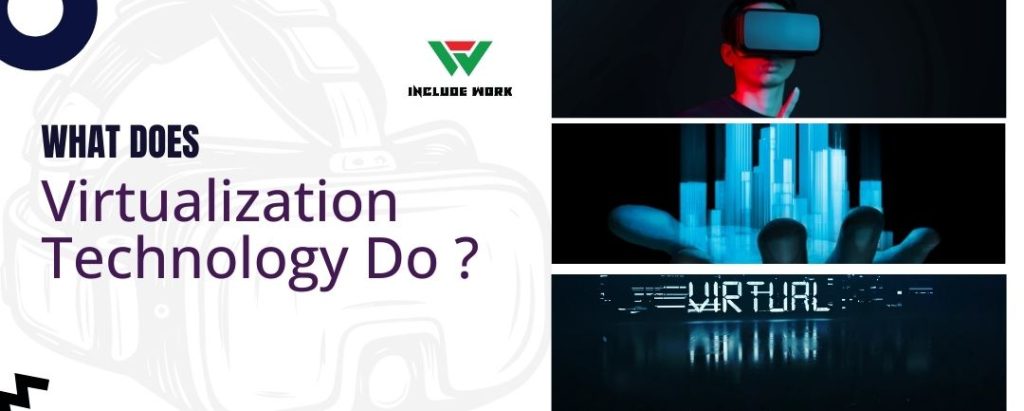
Virtualization technology revolutionizes how computing resources are managed and utilized. It allows a single physical hardware system to run multiple virtual machines, each operating independently. Here are the key functions of virtualization technology:
Resource Optimization: Virtualization maximizes the use of hardware resources by distributing them among multiple virtual environments.
Cost Reduction: By reducing the need for physical hardware, virtualization cuts down on hardware costs and energy consumption.
Scalability: Virtual environments can be quickly scaled up or down based on demand, providing flexibility and efficiency.
Improved Disaster Recovery: Virtual machines can be easily backed up and restored, enhancing disaster recovery capabilities.
Isolation: Applications and services run in isolated environments, improving security and stability.
Virtualization technology transforms traditional IT infrastructures into more agile, cost-effective, and efficient systems.
Types of Virtualization
Virtualization technology encompasses various types, each serving different purposes and providing unique benefits. Here are the primary types:
Server Virtualization:
- Divides a physical server into multiple virtual servers.
- Enhances server utilization and simplifies management.
Desktop Virtualization:
- Allows users to run desktop environments on virtual machines.
- Enables remote access to desktops and reduces hardware dependency.
Network Virtualization:
- Combines network resources into a single, manageable virtual network.
- Increases network efficiency and flexibility.

Storage Virtualization:
- Pools physical storage from multiple devices into a single virtual storage device.
- Simplifies storage management and improves utilization.
Application Virtualization:
- Runs applications in environments separate from the underlying OS.
- Ensures compatibility and simplifies deployment.
Each type of virtualization addresses specific needs, making IT infrastructure more flexible and efficient.
Core Benefits of Virtualization Technology
Virtualization technology offers numerous benefits that enhance the efficiency and functionality of IT environments. Here are some core advantages:
Cost Savings:
- Reduces the need for physical hardware.
- Lowers energy consumption and maintenance costs.
Improved Resource Utilization:
- Maximizes the use of computing resources.
- Minimizes idle hardware and ensures better performance.
Increased Flexibility and Scalability:
- Easily adapts to changing business needs.
- Allows quick scaling of resources without major infrastructure changes.

Enhanced Disaster Recovery:
- Simplifies backup and restoration processes.
- Ensures data protection and business continuity.
Simplified Management:
- Centralizes management of virtual environments.
- Reduces complexity and improves operational efficiency.
By leveraging these benefits, businesses can achieve greater agility, cost-effectiveness, and resilience in their IT operations.
How Virtualization Technology Transforms Industries
Virtualization technology has a profound impact on various industries, driving innovation and efficiency. Here’s how it transforms different sectors:
Healthcare:
- Facilitates secure data sharing and remote consultations.
- Enhances patient care through efficient management of medical records.
Finance:
- Ensures reliable and secure transaction processing.
- Optimizes resource allocation and reduces operational costs.
Education:
- Supports virtual classrooms and remote learning.
- Provides access to educational resources from anywhere.
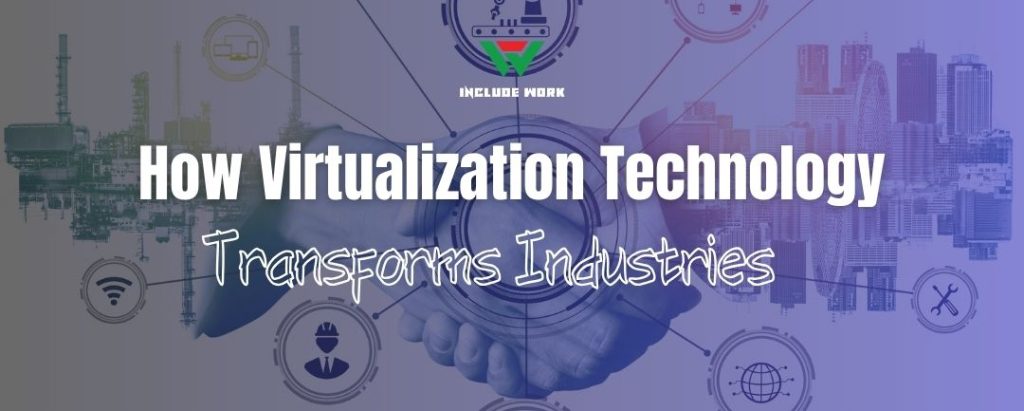
Retail:
- Enhances customer experience with improved data management.
- Streamlines operations through efficient resource utilization.
Manufacturing:
- Enables better control and monitoring of production processes.
- Reduces downtime and improves product quality.
By integrating virtualization technology, these industries can achieve greater efficiency, security, and innovation, ultimately driving growth and improving services.
What Does Virtualization Technology Do for Security?
Virtualization technology plays a crucial role in enhancing security measures within IT environments. Here are some key ways it improves security:
Isolation:
- Each virtual machine operates independently, isolating applications and data from each other. This minimizes the risk of a security breach spreading across the system.
Simplified Patching and Updates:
- Virtual environments can be easily updated and patched, ensuring that all systems remain secure and up-to-date with the latest security measures.
Disaster Recovery:
- Virtualization simplifies backup and recovery processes. In the event of a security breach, systems can be quickly restored to a secure state.
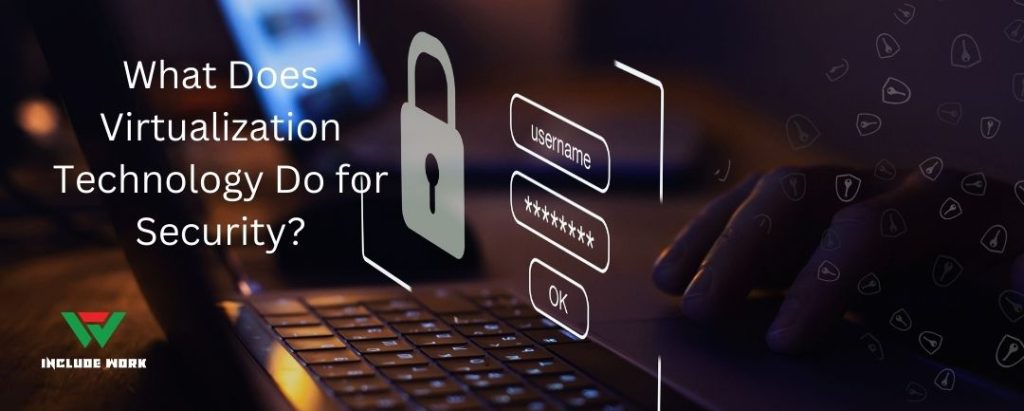
Controlled Access:
- Access to virtual environments can be tightly controlled and monitored, reducing the risk of unauthorized access and ensuring compliance with security policies.
Enhanced Monitoring:
- Virtualization platforms often include robust monitoring tools that detect and respond to security threats in real time.
By incorporating these security measures, virtualization technology helps protect sensitive data, ensures compliance with security standards, and enhances overall IT security.
Future of Virtualization Technology
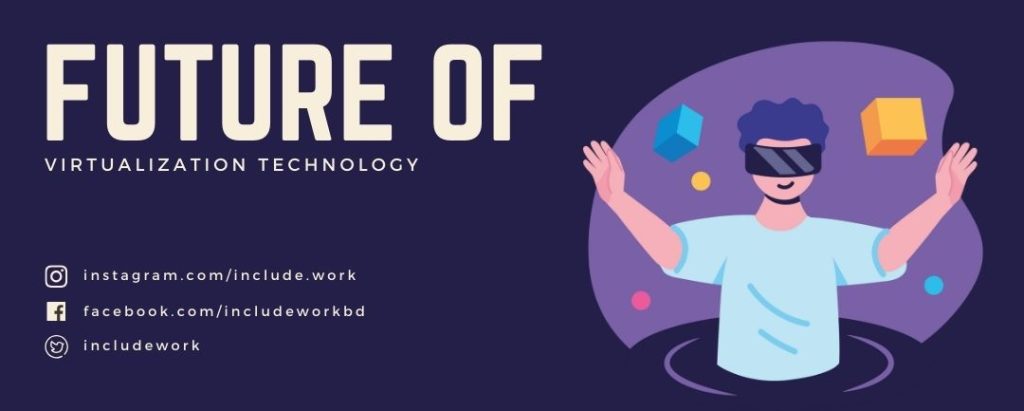
The future of virtualization technology looks promising, with several trends and advancements expected to shape its evolution:
Edge Computing:
- Virtualization will extend to edge devices, enabling real-time processing and analysis of data closer to its source.
Containerization:
- Containers, a form of virtualization, will become more prevalent, offering lightweight and efficient alternatives to traditional virtual machines.
Integration with AI and Machine Learning:
- Virtual environments will increasingly incorporate AI and machine learning, enhancing automation, security, and resource management.
These trends indicate that virtualization technology will continue to be a critical component of IT infrastructure, driving innovation, efficiency, and security.
What Does Virtualization Technology Do | personal opinion and experience
Great question! that What Does Virtualization Technology Do? Virtualization technology is like having superpowers for your computer systems. Imagine you’re hosting a big party, but instead of having one giant room where everyone mingles, you have the ability to create smaller, private rooms instantly, without adding more physical space. That’s what virtualization does for your servers and computers.
It allows you to create multiple virtual environments on a single physical machine, each running its own operating system and applications as if they were separate devices. This means you can maximize the use of your hardware, running multiple tasks efficiently and securely without them interfering with each other. It’s like turning one computer into many, saving costs on physical hardware and making management a breeze.
I remember a time when I was managing a small IT startup, and we were struggling with our server capacity. We had limited resources but needed to run different applications for various clients. Investing in new hardware was out of our budget, so we turned to virtualization. We used a tool called VMware, and it was a game-changer. We could set up different environments for testing, development, and production on the same server. This not only saved us money but also reduced the hassle of maintaining multiple machines.
Plus, if one virtual machine faced an issue, it didn’t bring down the entire server, which was a huge relief. Virtualization truly transformed our operations, making us more efficient and scalable. So, if you’re looking to optimize your IT infrastructure, virtualization is definitely the way to go!
Conclusion
Virtualization technology has revolutionized the way businesses manage their IT infrastructure. By optimizing resource utilization, reducing costs, and enhancing flexibility, it provides a robust foundation for modern IT environments. Whether improving security, enabling disaster recovery, or transforming industries, virtualization technology offers significant benefits that drive efficiency and innovation. As we look to the future, advancements in virtualization will continue to shape the digital landscape, making it an essential tool for businesses seeking to stay competitive and secure in a rapidly evolving world.
